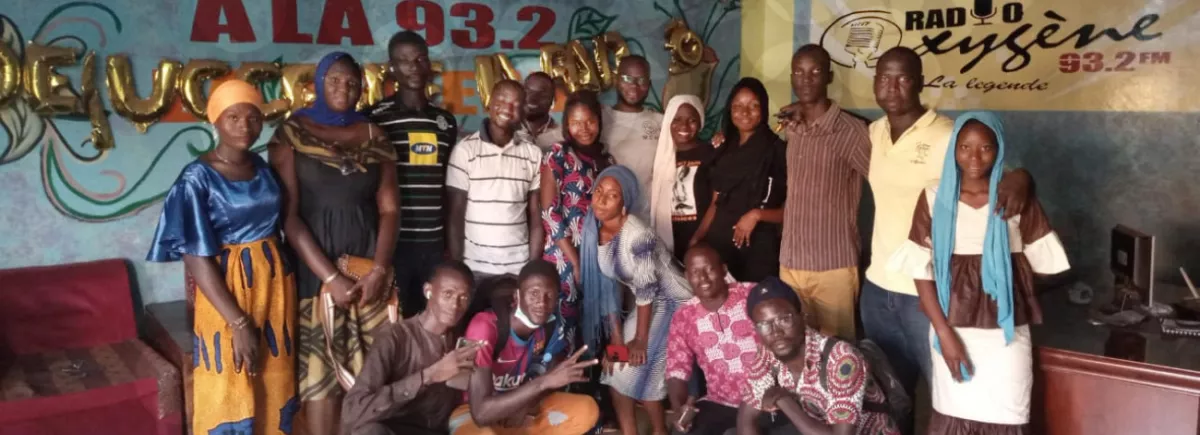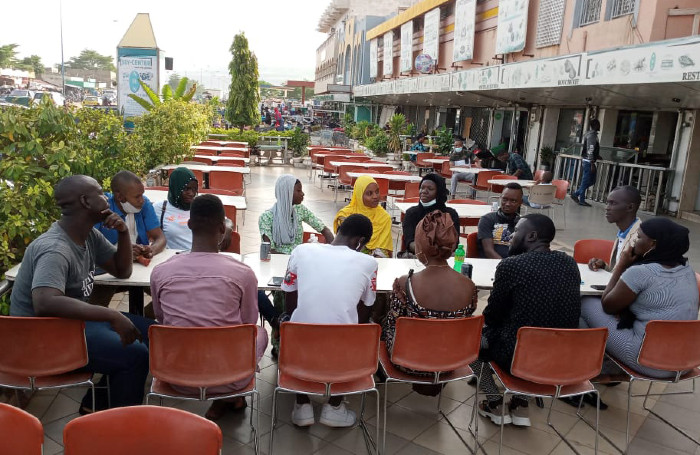
Listeners' clubs: the power of community radio stations
Related project
MediaSahelAfter a training session on community management and social engagement, some partner radio stations of the MédiaSahel project launched listeners' clubs within their media outlets. This was the case for Radio Oxygène in Bamako, which has more than one hundred clubs to its name, and Radio Salaki in Dédougou, with its "FAURS" (Fidèles Auditeurs de la Radio Salaki — faithful listeners of Radio Salaki).
According to Media Management Consultant Trainer, Sahadou Zato, listeners' clubs are both for listening and support. The former is much like traditional listening clubs, where the radio stations can receive feedback about their programmes. Whereas, in terms of the support side of things, they allow listeners to show solidarity with their radio stations in different ways.
As ambassadors for radio stations, the clubs are a means of establishing community links. Made up of volunteers, they are overseen by an umbrella organisation.
"To this day, the FAURS (faithful listeners of Radio Salaki) are what makes the radio station in Dédougou so strong. They support it and promote programmes, while they also conduct social marketing. Most of the villages covered by Radio Salaki are organised into faithful listener groups and each group has set up an office."
Sahadou Zato, Media Management Trainer
So much enthusiasm
Listeners' clubs are well structured. At Radio Salaki, each member of FAURS groups must have an up-to-date membership card, which costs XAF 500 per month. The revenue is used to support the radio station and to help create new offices.
Like Radio Salaki, Radio Oxygène in Bamako also created clubs following the community management and social engagement training session offered by MédiaSahel. After the training, we passed on that we wanted to set up clubs. We have experienced so much enthusiasm, says Sankoun Diaby, Director of Radio Oxygène in Bamako.

Although he acknowledges that creating clubs was not one of his initial goals, he is now delighted to have implemented this strategy.
We currently have about 153 clubs in the areas and villages we cover. These clubs support us: they find us new listeners, they make voluntary contributions to cover some of the radio station expenses and they also help us when it comes to travelling and staying in certain areas. Our clubs are planning to organise a day of culture and art soon to raise money for the radio station, Sankoun says.
For Zato, it is satisfying to see the increasing numbers of these clubs. However, he is disappointed about the fact that some radio stations cannot start up such clubs due to the security situation where they broadcast. This is the case for the Walde Ejef radio station in Gorom-Gorom and the Basnéré radio station in Tougouri, both of which are in Burkina Faso.


